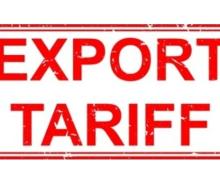In anticipation of a hard Brexit and what such a break between the UK and EU may mean, the British International Freight Association (Bifa) has advised freight forwarders to pay attention to a couple of key points.
According Peter MacSwiney, chairman of customs clearing company Agency Sector Management, forwarders dealing with time-sensitive or just-in-time air cargo should take time to familiarise themselves with congestion, collaboration and TSP – Transitional Simplified Procedures.
Elaborating on TSP, MacSwiney said it would “allow business to defer full import declarations until a later date, which could help the flow of goods to keep moving post Brexit”.
Amid all the fear and anxiety caused this week in the wake of British Prime Minister Boris Johnson’s prorogation of parliament ahead of what seems like preparation for a no-deal divorce, MacSwiney said TSP could play an instrumental role in avoiding supply chain disruption.
He warned that there was a real reason to be wary of what might happen come November 1 when the world wakes up to a new trade reality between the UK and EU.
A British air cargo portal quoted MacSwiney saying: “The first thing to consider when preparing for Brexit is that if one part of the supply chain stops functioning, it has a knock-on effect for all other parties involved.
“Additional customs requirements for air cargo could result in increased trucking congestion at airports and delays to goods being delivered by road, so even companies that aren’t directly involved in air cargo would still be affected.”
Considering the effect that a new customs environment might have on effective supply chain flow, MacSwiney also advised freight forwarders and related concerns to collaborate.
Working together, he said, could go a long way towards preparing for and dealing with uncertainty and unknown factors that could adversely challenge freight.













